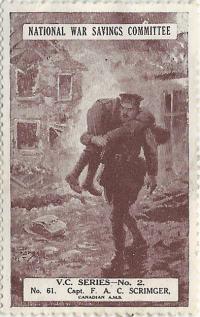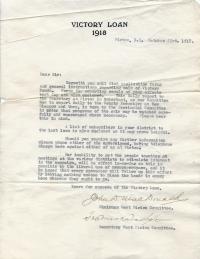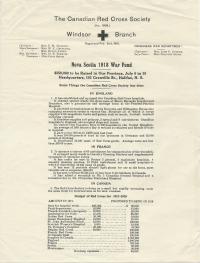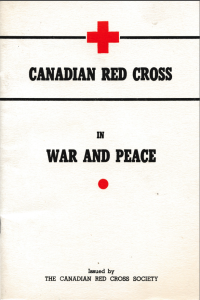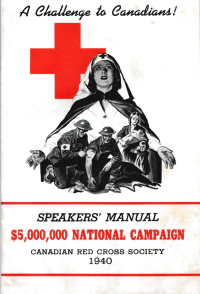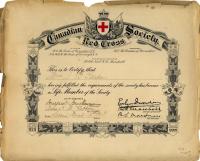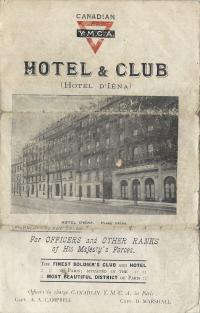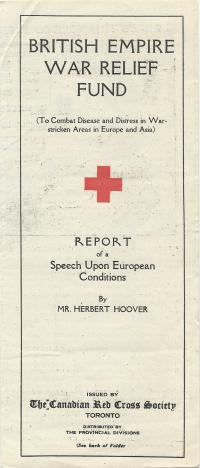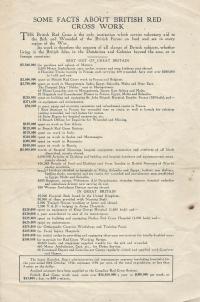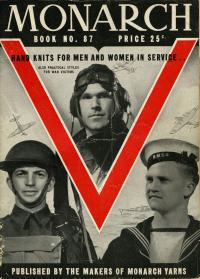Volunteering
Introductory Essay
Dr Scrimger, VC
This war savings stamp honoured Captain Francis Scrimger of Montreal, who won the Victoria Cross at the Second Battle of Ypres in April 1915.
Victory Bonds on sale!
Like previous campaign, the 1918 Victory Loan drive relied on thousands of local volunteers, both as organizers and canvassers.
Fund-raising in the Maritimes
Over a single week in 1918, the Canadian Red Cross Society intended to raise $250,000 in Nova Scotia alone - the equivalent of over $3.4 million in 2014 values.
Canadian Red Cross in War and Peace
This booklet describes the services offered by the Canadian Red Cross in the past, during the war, and in the peacetime to come.
Canadian Red Cross Speakers' Manual for the National Campaign
This booklet has instructions for speakers from the Canadian Red Cross Society, to help them meet their $5,000,000 goal in the 1940 national campaign. It includes information about how the Red Cross will use your donations, and sample speeches used encourage people to donate.
A lifelong Red Cross worker
The First World War offered endless opportunity for charitable organizations, and there were many committed volunteers, like Mrs Pardee, prepared to devote time and energy to the cause.
On leave in Paris
One of the many services provided by the YMCA was accommodation for soldiers on leave. This pamphlet was carried by a member of the 4th Canadian Mounted Rifles.
"Europe's Triangle of Suffering"
The First World War was followed by a humanitarian crisis in eastern Europe, with destitute war orphans and the spread of typhus creating significant challenges for aid societies.
From ambulances to invalid kitchens
The Canadian Red Cross Society furnished these statistics about the activities of its sister society in Britain - which was spending $30 every minute on relief and charitable work related to the war.
Knitting for Victory
This craft book included a long list of women's war charities in Canada, and patterns for every conceivable garment for men and women in uniform, as well as "practical styles for war victims."

